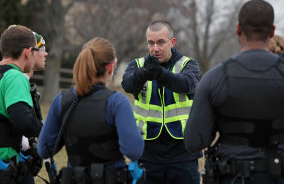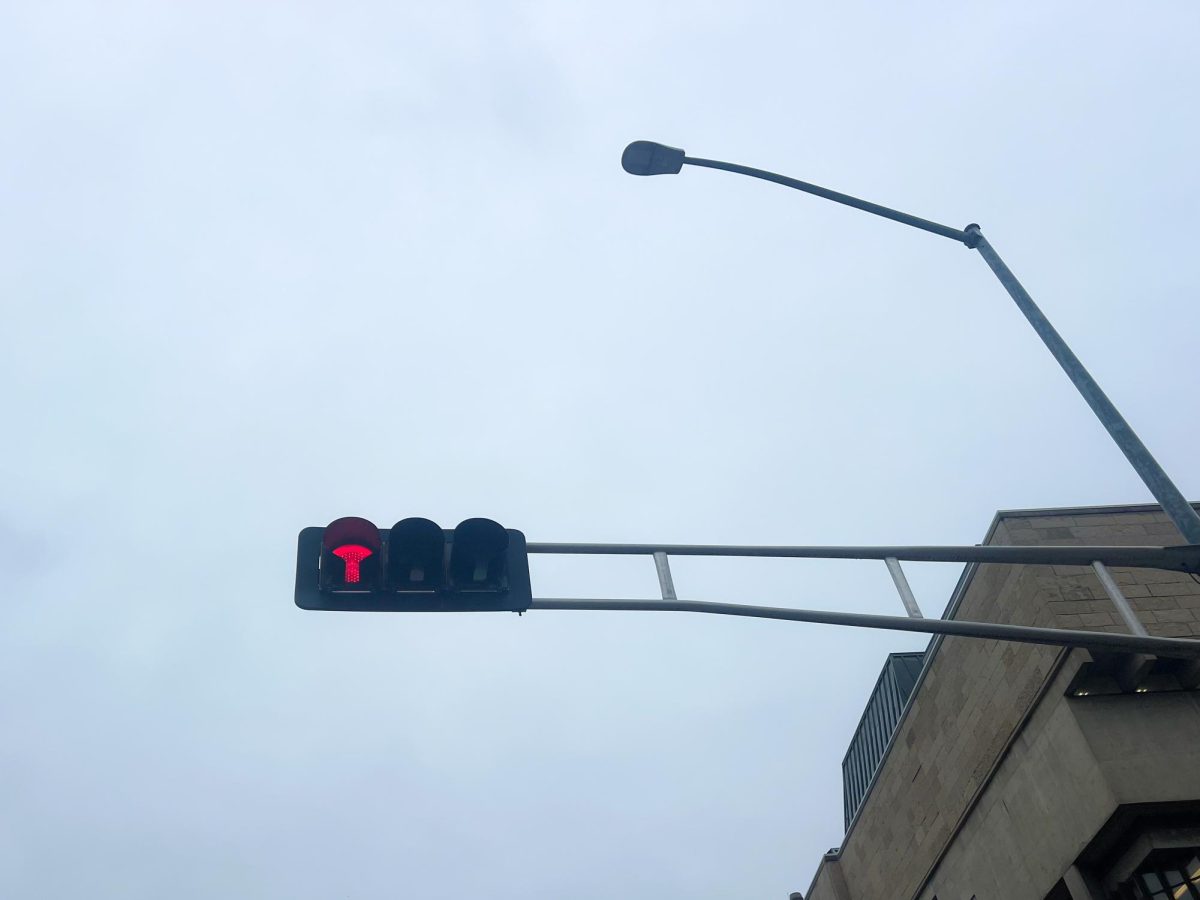In the aftermath of Ferguson, the Madison Police Department is having trouble finding law enforcement candidates.
A direct correlation between the two isn’t concrete, Sgt. Tim Patton, MPD personnel and training recruiter said, but recruitment numbers are down and Patton is concerned that the events in Ferguson, Missouri regarding police brutality, is causing some hesitancy among candidates.
The post-Ferguson discussion is creating doubt among recruitment candidates, Patton said, adding that he is confident numbers will increase due to strong community ties through policing.
A lack of understanding about the job is one of the biggest reasons recruitment numbers are low, Patton said.
“The aspects of the job that are most [prominent] in the media have to do with the militarization of law enforcement,” Patton said. “It has to do with writing tickets and taking people to jail, but the majority of the work is simply relational skills.”
Issues of diversity and a post-Ferguson setting can also be attributed to the decrease in interest.
People are conflicted because of how police around the nation are being represented in the news, Police Chief Michael Koval said. However, there will be people who see through what they view on the news and realize the MPD is made up of selfless public officials, Koval said.
“[Madison has] a fundamentally more healthy environment, which is characterized by people with phenomenal education, phenomenal life, work and volunteer experiences and a background which is diverse as diverse can be,” Koval said.
An average academy class in Madison is comprised of 30 percent women and 20 percent people of color, which exceeds the national average — the typical makeup of a well-rounded, well-educated law enforcement agency, Koval said.
However, connecting recruits of color to policing has been a challenge for MPD even before the Ferguson events, and it has continued through this year, Patton said.
“The bigger challenge for us moving forward after this last year is in continuing our efforts in terms of diversity and that we may see reductions in those numbers even further,” Patton said. “That would be certainly troubling because one of the important principles of the Madison Police Department is that the police force represents the diversity of our city.”
The hope of MPD is for the graduating class from the academy each year correctly represents the diversity of Madison, Patton said. If they cannot represent the diversity of the city, that causes problems connecting with the citizens of Madison, Patton added.
Whether or not those connections are damaged by a lack of diversity will not be determined until the end of this year, Patton said. The number of recruits and their diversity and education levels will be closely monitored in order to enhance recruiting efforts for the future.
“It is worth talking about in terms of the impact of this last year and continuing to bring the best police officers to the city of Madison and to [University of Wisconsin Police Department] and all the other agencies that interact with the student population in and around campus,” Patton said.













